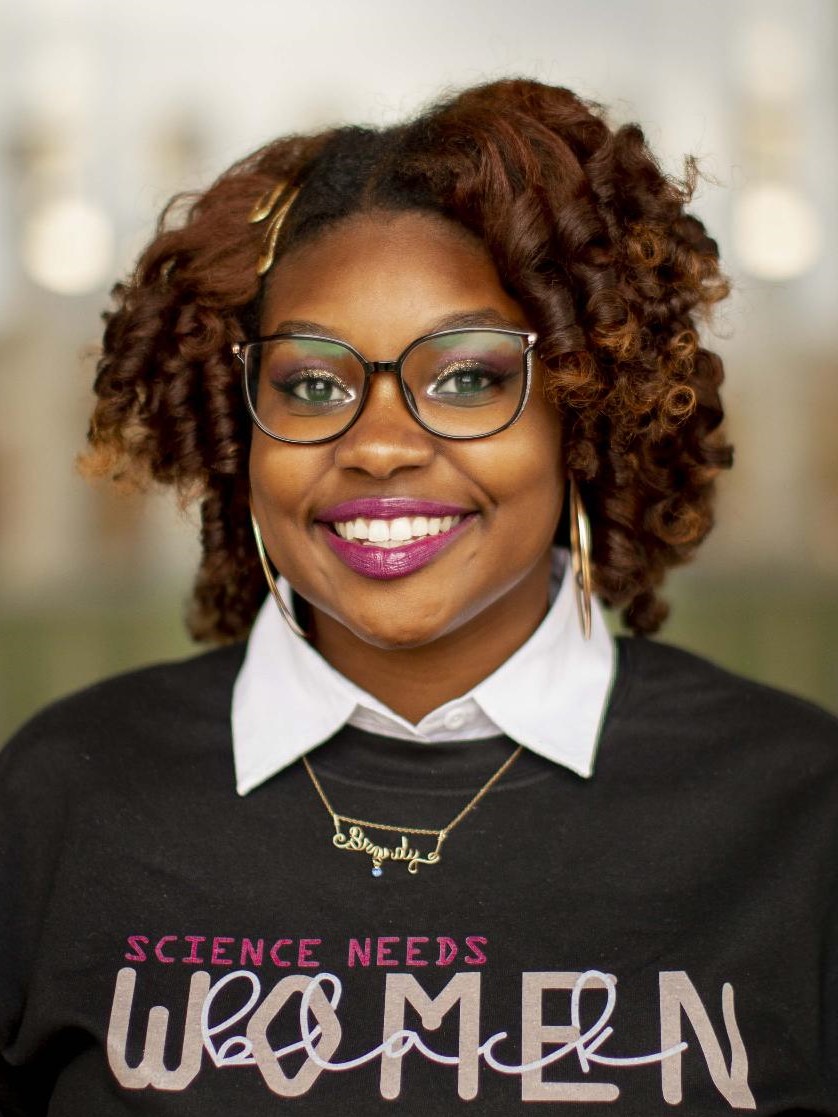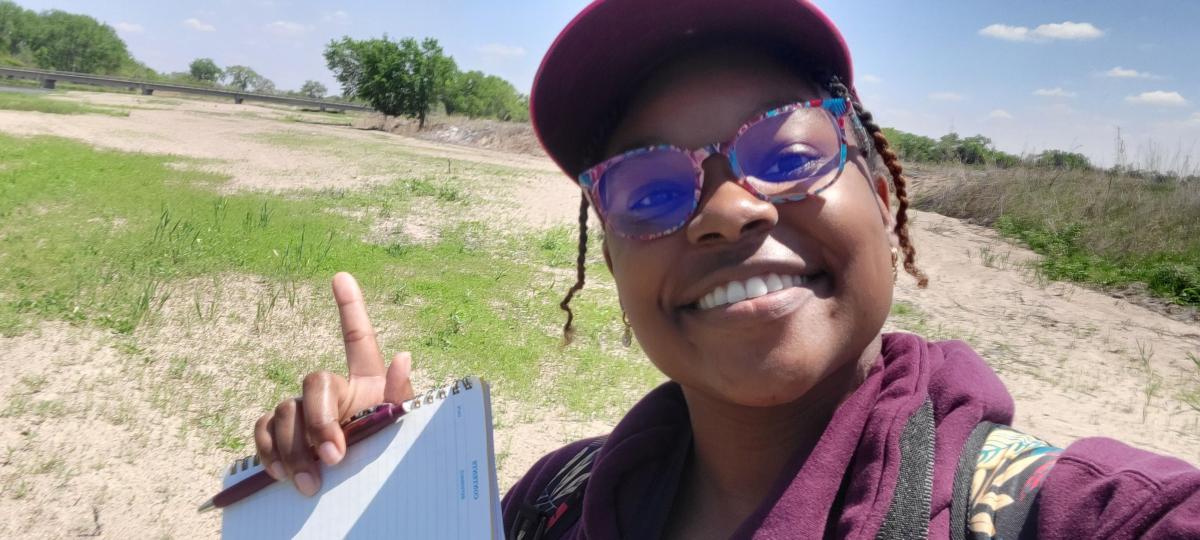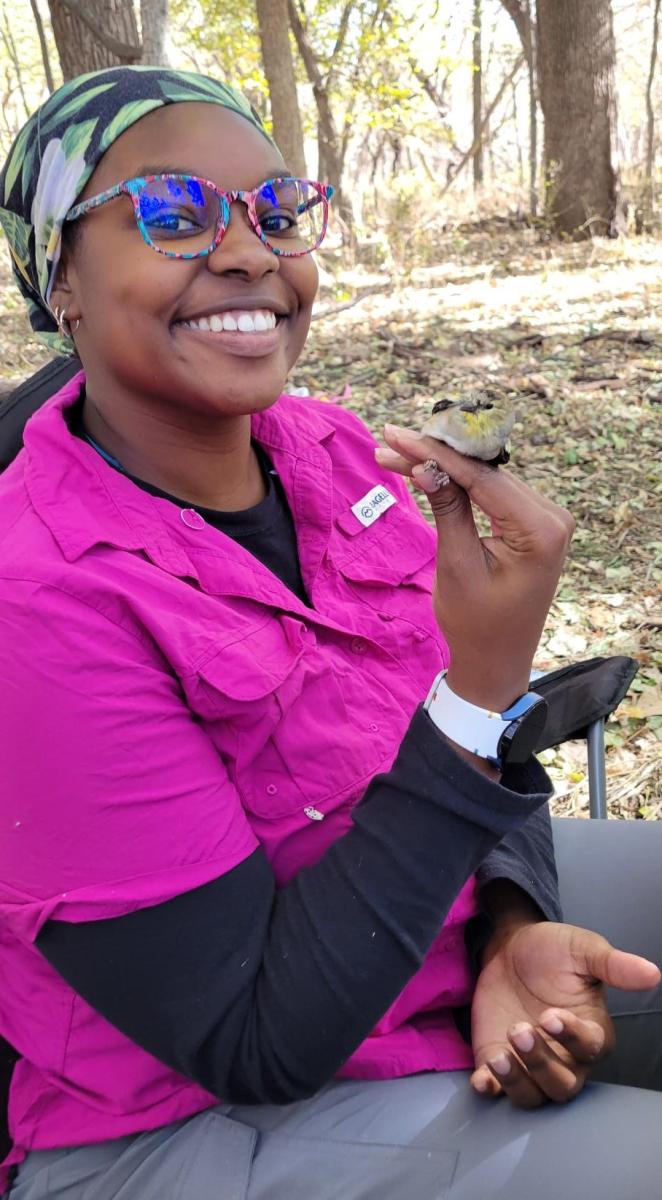Advisor(s): Dai Shizuka, Mark Vrtiska

Learning more about plovers and oneself
Brandy Williams came to Nebraska with questions about piping plovers and killdeer but even greater questions about herself.
In her first semester as a doctoral student studying how the birds lure predators away from their offspring by pretending to have a broken wing, she began to question if she, too, was pretending to be something she was not.
“Being a black woman in STEM has its own issues in itself, but imposter syndrome is a real thing,” she says.
Her struggles heightened during a foundations class she had expected to be easier than other classes in her department, the School of Biological Sciences.
“One day, I just had a moment where I was like, ‘Everybody in this room is smarter than me. I don't know what I'm doing here. I feel like don’t belong here.’ And it was like a really hard thought to have,” she says.
In the weeks following the class, she challenged herself to become more involved in the campus community and make connections by reaching out to others. Even if she felt she had nothing in common with others, she introduced herself to them and asked what they did.

“Once I did that, I realized, ‘OK. No one is smarter than anybody else in this room. We're all here because we deserve to be here. We worked hard to be here, and we're all still learning,’” she says.
She discovered she knew things that others didn’t and they were “all experts in our own areas,” she says.
“That was kind of the biggest moment for me where I was just like, ‘Okay, I am a scientist, I am a researcher, and I deserve to be here,’” she says.
Now when she goes into the field to observe birds and collect data, she realizes she is communicating that message to others.

“I feel like a lot of people feel like scientists are just men in lab coats, and it's like, ‘Not necessarily,’” she says. “Like, I go out in the fields sometimes with a big afro and hoop earrings, and it is what it is, but I'm still doing science. Just because I look different doesn't mean that I can't contribute to the knowledge of the world. So, I think people understanding that anybody can be a scientist and that there is no one way a scientist looks like is really important.”
With her project on the endangered piping plover and killdeer, she says she wants to conserve diversity in animal species for ecosystem resilience and build diversity in the field of science also.
“My biggest motivation overall in all the science that I do is just science communication, essentially, and my overarching goal is to always just create more diverse scientists and get more people who look different and have different backgrounds in science in general,” she says.
For her, birds are a good way to interest diverse people in science, possibly better than the insects she has studied in the past, treehoppers and ticks.
“I feel like birds are a really good species to get people keyed into science because they are readily available,” she says. “We all experience them. You can sit on your front porch and go birding, if you want. So, yeah, it's just a more accessible science.”
Scientists don’t typically take wild birds and keep them in a lab, as they do other animals. Williams says that is another reason she likes working with birds and thinks they would appeal to others.
“We go where they are, we meet them where they are, and we use their environments to our advantage,” she says. “And, I really enjoy that I get to go outside to do my science.”
She notes Lincoln has advantages over her hometown, St. Louis, Missouri.
“I really like that things are just closer and it's a smaller town and it's more quiet and peaceful. I enjoy that,” she says.
She is still uncertain what she will do once she graduates but says she wants to be involved in science communication and outreach.
“Being here has just reaffirmed the fact that science is for me and I am supposed to be a scientist,” she says.
— Ronica Stromberg, NRT Program Coordinator


